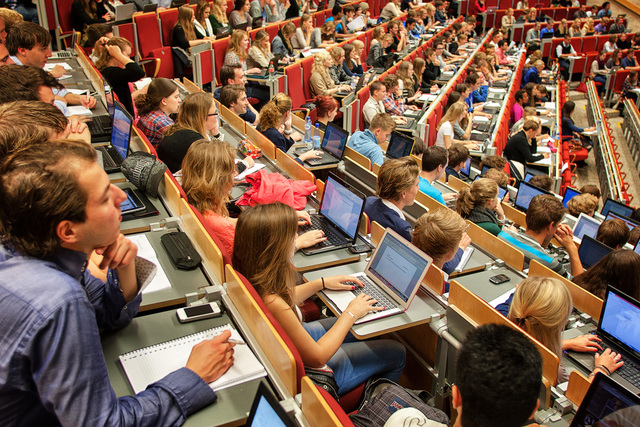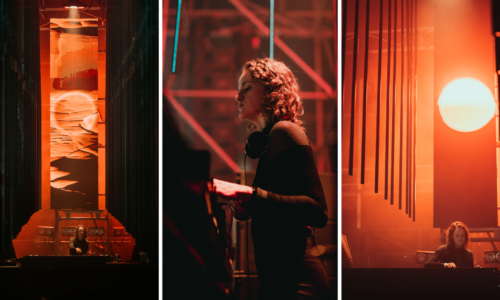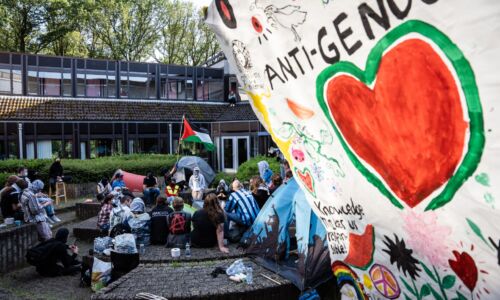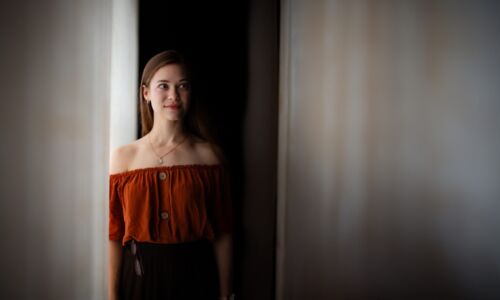Eastern European student more often gets negative BSA
-
 Image for illustration purposes only. Photo: Dick van Aalst
Image for illustration purposes only. Photo: Dick van Aalst
International students get a positive BSA structurally less often at Radboud University. Students from Eastern European countries in particular perform below average. This may well be due to language problems and the lack of a social network.
More than 70% of Dutch students get a positive binding study advice (BSA), but the situation is more difficult for international students. The number of international students with a non-German preparatory education and a positive BSA has fluctuated between 50 and 55% for the last five years. Since more and more non-German international Bachelor students are coming to Radboud University, that number is increasing significantly.
On average students from Bulgaria, Lithuania and Romania, in particular, perform poorly more often. They are followed by students from South Korea, Spain, Ireland and the United Kingdom. The German students are a positive exception: in the last academic year, 65% of them gained a BSA and in the past, they often performed even better than the Dutch students. After the first year too, German students perform better on average. German students meet many compatriots in study programmes such as Biology and Psychology. ‘They support each other, and their social safety net is larger than that of other international students,’ says educational policy officer Inez Vereijken.
That is very different in the case of Korean students who come to the Netherlands. ‘They were not so accustomed to expressing an opinion at secondary school,’ says Laura Derkse of Radboud University International Recruitment. ‘It is easier for them to be admitted to Dutch institutions than to British or American universities, but they are really thrown in at the deep end. Students sometimes have difficulty coping with that independence.’
Language test
There are also differences between study programmes in terms of the number of students getting their BSA. Below-average performance is greatest in the Faculty of Arts. Less than 60% of the international students in all English language study programmes gets their BSA – only Business Administration does better.
The problem is greater at Radboud University than at other Dutch universities, where international students often perform even better than the Dutch students. ‘I suspect that this is because we have not been offering English language Bachelor’s programmes for very long,’ says Institutional Research team leader Han Werts. ‘We aim to have international students perform at least as well as Dutch students in the long term.’
‘Many Dutch students go home on Fridays, but international students do not’
One possible reason for the poor performance of international students is that they are less proficient in English. Up till now, Radboud University applied the guidelines of Nuffic, the organisation for internationalisation in education. According to those guidelines, students from fourteen countries wishing to take a Bachelor’s programme in the Netherlands are exempt from a language test. ‘As of next academic year, most students wishing to take an English language Bachelor’s programme will have to take a language test,’ says Derkse.
In addition, it would appear that for many international students, the transition from secondary school to a foreign university is a big step. ‘They are only 18, and they arrive in another culture, with a new way of studying,’ says Vereijken.
Study skills
So one solution the university is looking at is improving the feeling of community. ‘We put a lot of effort into the reception of and accommodation for international students in the Netherlands,’ says Derkse.
The ultimate goal is to have international students feel more at home at the university. ‘Many Dutch students go home on Fridays, but international students do not. They don’t always know where they can go or who they should phone. For that reason, more social activities are being organised, such as the recent Global Night,’ says Vereijken.
Since the university wants international students to feel at home as soon as they arrive in Nijmegen, the orientation week is also being reviewed. New Dutch and international Bachelor’s students have experienced the orientation together for years now, and soon Master’s students will be doing the same. The university wants to make more information about studying in the Netherlands available during the orientation week. ‘For example, there will be more focus on study skills,’ Derkse explains.



